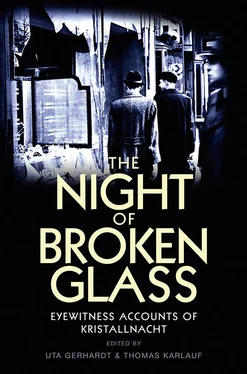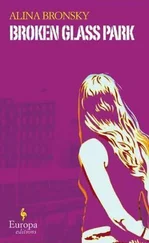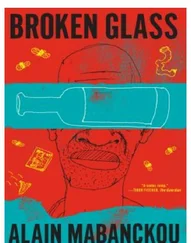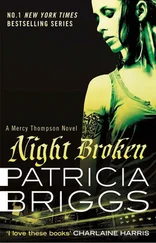At this time Goebbels was on top form. On 10 November, when Ernst vom Rath’s life still hung by a thread, Goebbels wrote ‘If only we could release the wrath of the people right now’, as if he couldn’t wait for the diplomat to die. 11Did the cynical Goebbels really believe in the wrath of the people? Didn’t he see it instead as an instrument that had only to be correctly manipulated? An SD memo of January 1937 concerning the situation of Jews in Germany had stated that ‘the wrath of the people is the most effective means of depriving Jews of their sense of security… . This is all the more comprehensible from a psychological point of view because Jews have learned a great deal from the pogroms of recent centuries and fear nothing more than a hostile mood that can turn against them at any time.’ 12In November 1938, ‘the wrath of the people’ ( Volkszorn ) was one of Goebbels’s favourite expressions. When the right moment comes, he noted on the day after the riots, it would be necessary to ‘let things take their course’. 13
Goebbels knew that by instigating a pogrom he could score points with Hitler. A large-scale action against the Jews would help him, put him once again at the centre of things and strengthen his position (which had been weakened by his affair with the actress Lida Baarova) in the delicate power mechanism of the Third Reich. Among all the Nazi paladins, Goebbels certainly had the keenest ear for Hitler’s obsession with driving Jews out of Germany by any means. As they sat cosily with the old guard in Hitler’s favourite café the previous evening, discussing ‘all possible questions’ until 3 a.m., the two of them had probably already arrived at an agreement on their options with regard to the attack in Paris.
In the particular situation of 9 November, Goebbels sensed a unique opportunity to steal a march on his greatest rival, Hermann Göring, who had taken over one office after another and since 1936 had enjoyed enormous power as plenipotentiary for the Four-Year Plan. Göring had recently proven his ruthlessness in the Blomberg–Fritsch affair and in the annexation of Austria; but during the Sudeten crisis of late September, he had for the first time been among those who hesitated and urged caution. Since then his star had been on the decline. Göring had repeatedly spoken out against anti-Jewish demonstrations because they only further aggravated the Reich’s economic difficulties, particularly with regard to the currency problem. ‘Gentlemen, I have had enough of these demonstrations,’ he said indignantly and with his characteristic theatricality during the extraordinary meeting he called two days after the pogroms. ‘They do not harm the Jews, but rather me, because as the final authority I am responsible for the entire economy.’ 14
Four years earlier, in the run-up to the Nuremberg party rally where the ‘race laws’ were promulgated, there had already been conflict between authorities regarding the ‘Jewish question’. Under the motto ‘This city must become free of Jews ( judenfrei )’, almost every German community had come up with its own perversities, and the attacks on Jews had been threatening to get out of hand. On 20 August 1935, Hjalmar Schacht, then the Reich’s Minister of Economic Affairs, had called a meeting of leaders at which he complained about the ‘serious damage to the German economy being done by the exaggerations and excesses of anti-Semitic propaganda’. 15Consequently, interior minister Wilhelm Frick issued a statement informing regional governments that ‘individual actions against Jews … must absolutely stop.’ 16However, the head of the Gestapo, Reinhard Heydrich, had already decreed that ‘in order to collect information regarding Jews in Germany … a Jewish registry should be drawn up.’ 17In the regulations issued in August 1935, three basic tendencies of the November pogroms are already clearly foreshadowed: the centralization of state intervention, the prevention of spontaneous actions and the protection of German economic interests.
All the steps taken served one and the same goal, about which there was general agreement: the Jews had to be expelled. ‘Jews have to be expelled from Germany, indeed from Europe as a whole,’ Goebbels wrote after a long conversation with Hitler at the end of November 1937. ‘It will take a while, but it will and must happen. The Führer has made up his mind on this point.’ 18The question was only in what way this goal could best be achieved without inflicting too much damage on Germans. Moreover, the state and party leadership were confident that in implementing the necessary measures they could count on the support of the population.
At the previously mentioned meeting with the minister for economic affairs in August 1935, Adolf Wagner, the Gauleiter of Munich-Upper Bavaria, acting as the Führer’s representative, put on record his view that 80 per cent of the population called for ‘a solution to the Jewish question in line with the party’s programme; the Reich government has to respond to this demand, otherwise it will suffer a loss of authority.’ To reassure other participants in the meeting who were less inclined to take immediate action, he added that ‘this need not happen all at once.’ 19
With the annexation of Austria in March 1938, the ‘Jewish question’ acquired a new dynamic, and suddenly everything had to move very fast. Of the approximately 520,000 Jews who had been living in Germany in 1933, only about 360,000 were still in the country; now there were in addition some 190,000 Austrian Jews (of whom about 170,000 lived in Vienna). The Germans immediately increased the pressure. In a very short time, they not only implemented in Austria all the laws and regulations that had for the past five years made life increasingly difficult for Jews in the Old Reich, but also introduced numerous new rules to coerce the Jews to hand over all their possessions and then leave the country. In the spring of 1938, there were further, even more violent, riots and, in the context of the so-called ‘June action’, 1,500 Jews were sent to concentration camps. When at the international conference on refugees organized by the United States in Evian in July, all of the thirty-two participating states declared more or less openly that they could not increase their immigration quotas, the German press commented scornfully on the conference’s failure and let it be known that, since no other country would accept the Jews, no meddling in the question of how Germans dealt with the ‘Jewish problem’ would be tolerated. In August, the first Central Office for Jewish Emigration was set up under the direction of Adolf Eichmann.
It was against the background of the stepping-up of anti-Jewish measures in Austria and the successful expulsion of the 16,000 Polish Jews at the end of October, the prestige won in Munich, the inaction by the international community, and also the growing pressure among party members, especially in the ranks of the SA and the Hitler Youth, to finally get rid of the Jews that, on the evening of 9 November, Hitler unleashed his propaganda minister. The fanatical thirty-minute hate speech that Goebbels delivered (and of which no verbatim record has been preserved) before the party bigwigs who had gathered in the great hall of the Munich Rathaus was received, as Goebbels himself noted in his diary, with thunderous applause: ‘They all immediately dashed to the telephones. Now the people will act.’ 20
In his speech, Goebbels had made it clear that the Nazi party would have to ‘organize and implement’ everything, but should not ‘outwardly appear to be the instigator of the demonstrations’. 21The district and local group leaders and SA leaders throughout the Reich were instructed to set the corresponding actions in motion – and these instructions were understood to mean also that ‘Jewish blood should flow.’ 22In the meantime, Hitler received the national leader of the SS and the head of the German police in his apartment on Prinzregentenplatz. Himmler was obviously surprised. Although he had himself given an inflammatory anti-Jewish speech to the SS Standarte ‘Deutschland’ the preceding evening – ‘We will force them out with unparalleled ruthlessness’ 23– he found it annoying that Goebbels had been quicker to seize the opportunity and had been able to use the Paris attack to further his own interests. In this awkward situation, Himmler fell back on his position as supreme protector of order: a clever tactic that led to the SS – and in particular the head of the secret police and the SD, Reinhard Heydrich – emerging from the events of November as the great winners. When Heydrich, who had been awakened in his hotel room around 11.30 p.m. so that he could examine reports from the Munich Gestapo, asked how the police and the SS should respond, Hitler told him – on Himmler’s advice, according to Ian Kershaw 24– that the SS should keep out of it, but that the police should ensure that the pogrom was carried out in an orderly way.
Читать дальше












